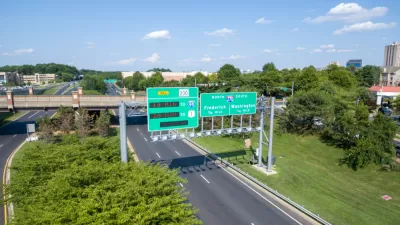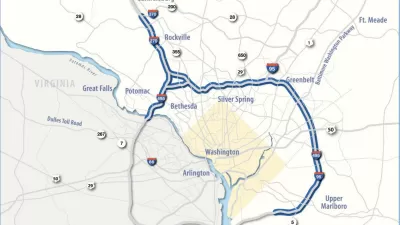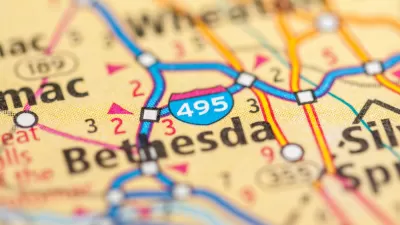Transportation plans justified with pre-coronavirus data are now obsolete, according to a line of argument recently presented to the Maryland Transportation Authority.

Bruce DePuyt reports from the April meeting of the Maryland Transportation Authority, where numerous critics showed up to urge the state to suspend a plan to widen two Washington, D.C. area highways with toll lanes.
"Many residents and activists who spoke during the public comment portion of the Maryland Transportation Authority’s April meeting opposed the plan to widen the Capital Beltway and Interstate 270 long before the COVID-19 crisis struck," according to DePuyt.
Critics are now arguing that the case for the new toll lanes has been built on data now obsolete as commuter and travel patterns could potentially shift over the long-term.
"Many companies and workers are teleworking for the first time. How many continue teleworking after the pandemic subsides is a question that transportation officials and industry consultants will study for some time," explains DePuyt.
There's little indication yet whether the Maryland Transportation Authority will act in accordance with the wishes of these critics.
FULL STORY: State Urged to Put Toll Lanes on Hold for Changes Ahead

Planetizen Federal Action Tracker
A weekly monitor of how Trump’s orders and actions are impacting planners and planning in America.

Maui's Vacation Rental Debate Turns Ugly
Verbal attacks, misinformation campaigns and fistfights plague a high-stakes debate to convert thousands of vacation rentals into long-term housing.

Restaurant Patios Were a Pandemic Win — Why Were They so Hard to Keep?
Social distancing requirements and changes in travel patterns prompted cities to pilot new uses for street and sidewalk space. Then it got complicated.

In California Battle of Housing vs. Environment, Housing Just Won
A new state law significantly limits the power of CEQA, an environmental review law that served as a powerful tool for blocking new development.

Boulder Eliminates Parking Minimums Citywide
Officials estimate the cost of building a single underground parking space at up to $100,000.

Orange County, Florida Adopts Largest US “Sprawl Repair” Code
The ‘Orange Code’ seeks to rectify decades of sprawl-inducing, car-oriented development.
Urban Design for Planners 1: Software Tools
This six-course series explores essential urban design concepts using open source software and equips planners with the tools they need to participate fully in the urban design process.
Planning for Universal Design
Learn the tools for implementing Universal Design in planning regulations.
Heyer Gruel & Associates PA
JM Goldson LLC
Custer County Colorado
City of Camden Redevelopment Agency
City of Astoria
Transportation Research & Education Center (TREC) at Portland State University
Jefferson Parish Government
Camden Redevelopment Agency
City of Claremont




























